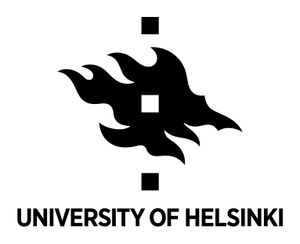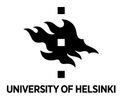Single gene controls fish brain size and intelligence
Fish with larger brains and higher intelligence had higher expression of Ang-1, and when expression levels of Ang-1 were experimentally reduced, brains shrunk. These trends were seen in two unrelated species of fish – guppies (Poecilia reticulata) and zebra fish (Danio rerio) – indicating expression of Ang-1 is important for brain growth and development in fish generally.
The study, published today in Proceedings of the Royal Society B, identified the underlying genetics of natural variation in brain size and cognitive abilities in fish. Ang-1 could play an important role in the brain development of other vertebrates, including humans, but future research is required to establish this say the scientists involved.
Populations of guppies selected for either large or small brains, with associated differences in intelligence, were used for the first step in the study which was a complete genome analysis of differently expressed genes. There was a 10% difference in brain size between the large and small-brain guppies and from the genetic analysis, Ang-1 was identified as the only gene expressed at different levels in each replicate population. Further experiments in zebra fish by collaborator Professor Pertti Panula at Helsinki University confirmed that Ang-1 is a driver for brain size.
Professor Judith Mank, UCL Biosciences, said: “We were surprised to see that only a single gene was up-regulated in the large-brained guppies. Given the complexity of the brain, we expected that the genetics would be very intricate, but this suggests that changes in brain size are underpinned by relatively simple genetic mechanisms.”
The protein encoded by Ang-1 is known to play an important role in growing new blood vessels and forming new brain cells in mice, which may indicate an important role of Ang-1 in brain growth of other animals, even in humans, say the scientists behind the study.
Dr Niclas Kolm, Stockholm University, said: “Other genes may be involved in brain growth in young, developing fish but no other genes were found to vary in their expression in adult fish other than Ang-1. Future studies will aim to investigate the role of Ang-1 and possibly other genes in the formation of differently sized brains in developing embryos”.
Professor Mank added: “We don’t yet know if Ang-1 is important in human brain development – it isn’t on the list of genes typically studied in relation to human brain size – but as it plays a role in forming new blood vessels in humans, there may be a connection as large brains need a bigger blood supply, particularly during growth and for many brain functions. This presents us with an exciting opportunity to investigate the role of Ang-1 across different vertebrates.”
The team now plans to study the age-specific genetic architecture of both brain structure and function based on new artificial selection experiments in the guppy.
The work was kindly funded by the European Research Council, the Swedish Research Council, the Austrian Science Fund, Academy of Finland and the Sigrid Juselius Foundation.
***
Yu-Chia Chen, Peter W. Harrison, Alexander Kotrschal, Niclas Kolm, Judith E. Mank, Pertti Panula, ‘Expression change in Angiopoietin-1 underlies change in relative brain size in fish’, will be published in Proceedings of the Royal Society B on 24 June 2015 and is under embargo until 00:01 London time.
Keywords
Contacts
Professor Pertti Panula, University of Helsinki: +358 40 592 2323, pertti.panula@helsinki.fi
For a copy of the paper or to speak to the researchers, please contact Dr Rebecca Caygill in the UCL press office, T: +44 (0)20 3108 3846 / +44 (0)7733 307 596, E: r.caygill@ucl.ac.uk
About University of Helsinki
 University of Helsinki
University of HelsinkiP.O. Box 4 (Yliopistonkatu 3)
00014 University of Helsinki, Finland
http://www.helsinki.fi/en
The University of Helsinki is one of the world’s leading multidisciplinary research universities, renowned for its high-quality teaching, research and innovation. It is proud to be constantly ranked among the top one hundred best universities in the world.
The university has an enrollment of over 35 000 students and it offers a wide range of Master’s programmes taught in English. Established in 1640, the University of Helsinki is the oldest university in Finland.
Subscribe to releases from University of Helsinki
Subscribe to all the latest releases from University of Helsinki by registering your e-mail address below. You can unsubscribe at any time.
Latest releases from University of Helsinki
AI boom requires new benchmarks for natural language understanding6.2.2024 08:00:00 EET | Press release
Aarne Talman’s timely research delves into the meaning of language understanding, its measurement and the weaknesses of current measurement benchmarks.
The Helsinki Collegium for Advanced Studies is a home base for international researcher encounters and a pioneer in the humanities and social sciences in Finland10.6.2022 09:00:00 EEST | Press release
The Helsinki Collegium for Advanced Studies at the University of Helsinki celebrates its 20th anniversary on 15 June, with star philosopher Martha Nussbaum as the anniversary speaker.
Globalization, Sustainability and the War in Ukraine - How does sustainability science explain past and future trajectories?31.5.2022 08:54:56 EEST | Press release
In February 2022, the global peace was shattered by the Russo-Ukrainian conflict that escalated into aggressive Russian invasion into Ukraine. While the situation is widely discussed in the media, not much attention has been given to the perspectives of sustainability science.
University of Helsinki's new open AI in Society MOOC will consider technology´s issues and challenges30.5.2022 09:03:41 EEST | Press release
University of Helsinki's Una Europa AI in Society Massive Open Online Course (MOOC) creates critical awareness of the basics of AI and its related ethical issues as well as its impacts on different sectors of society, including justice and jurisprudence, health care, and democratic participation. The MOOC examines how society could cope with these issues, and how the societal impact and relevant values can be considered in design, implementation, and deployment of AI.
University of Helsinki offers online course Ethics of AI in Finnish and Swedish23.11.2021 09:00:00 EET | Press release
The open and free online course Ethics of AI is designed to help us understand what it means to use AI ethically, and what it requires from society and individuals. The course uses examples of practical issues from its collaboration partners.
In our pressroom you can read all our latest releases, find our press contacts, images, documents and other relevant information about us.
Visit our pressroom